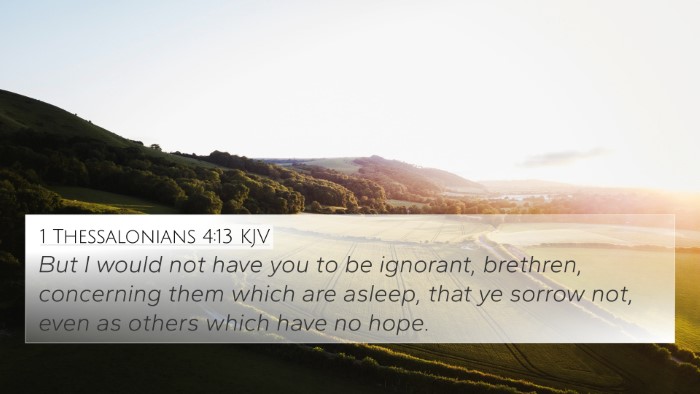Understanding Leviticus 21:2
Leviticus 21:2 states:
"And he shall take a wife in her virginity."
This verse is part of the Old Testament laws regarding the conduct of priests in Israel and their obligations, particularly concerning their marital status.
Summary of Meaning
The insights from Matthew Henry, Albert Barnes, and Adam Clarke provide a comprehensive understanding of this verse:
- Matthew Henry's Commentary:
Matthew Henry emphasizes the significance of holiness in the lives of priests. The instruction for a priest to marry a virgin reflects the necessity of purity and the symbolic nature of marital relations as a representation of the covenant between God and His people. It highlights the importance of lineage and setting an example of moral integrity for the community.
- Albert Barnes' Notes:
Albert Barnes elaborates on the historical context of Levitical laws, explaining that the priesthood was considered a sacred office, which required stringent guidelines, including the moral character of those who served. This specificity in marriage practices, including marrying a virgin, underscores the importance of purity and the type of household a priest was to establish, thus upholding the sanctity of God's service.
- Adam Clarke's Commentary:
Clarke notes the distinction made between a priest's marriage to a virgin and those who have experienced immoral relationships or were divorcees. He stresses that this ordinance was not merely a rule; it served to maintain the holiness of the priesthood and help preserve the dignity and esteem of the ceremonial practices conducted therein.
Bible Verse Cross-References
This verse relates to several other scriptures, establishing a broader theme in the Biblical narrative:
- Exodus 19:6 - "And you shall be to Me a kingdom of priests and a holy nation." This verse reinforces the call for holiness among God's people.
- 1 Peter 2:9 - "But you are a chosen generation, a royal priesthood, a holy nation ...," connecting the concept of priestly duty to New Testament believers.
- Ephesians 5:25-27 - "Husbands, love your wives, just as Christ also loved the church and gave Himself for her," highlighting the divine expectation of purity and love in marriage.
- Leviticus 21:13-14 - Details further regulations on the marriage of priests, emphasizing the same principle of purity.
- Hebrews 7:26 - "For such a High Priest was fitting for us, who is holy, harmless, undefiled, separate from sinners," drawing connections between Old Testament priesthood and Christ's holiness.
- Jeremiah 7:34 - God’s command against unholy unions that corrupt spiritual integrity.
- 1 Timothy 3:2 - "A bishop then must be blameless, the husband of one wife," showing the New Testament's continuity in upholding moral standards for leaders.
- Malachi 2:14-16 - God’s call for fidelity and holiness in marriage, which ties back to the importance of the priesthood's family life.
- Psalm 101:2 - "I will behave wisely in a perfect way. Oh, when will You come to me? I will walk within my house with a perfect heart," reflecting on personal and family holiness.
- Matthew 19:4-6 - Jesus’ affirmation of the sanctity of marriage, which correlates with the aspects of purity discussed in Leviticus.
Thematic Bible Verse Connections
Examining Leviticus 21:2 within the broader context of the Bible, we find thematic connections related to holiness, purity, and the responsibilities of those in ministry:
- Holiness and Purity: The continual theme throughout scripture emphasizes the necessity of a pure life reflective of one's commitment to God.
- Role of Spiritual Leaders: Whether in the Old Testament or New Testament context, leaders are held to higher standards to ensure they lead others righteously.
- The Nature of Marriage: The ideal of marrying a virgin offers deep theological reflection on the covenant relationship God desires with His people.
Conclusion
Leviticus 21:2 serves as a significant verse emphasizing the expectations of holiness required for priests and by extension, spiritual leaders today. By looking at comments from scholars and cross-referencing related scriptures, readers can appreciate the importance of maintaining purity both in personal conduct and in the context of marital relationships, creating a pattern that reflects God's character and desires for His people.




